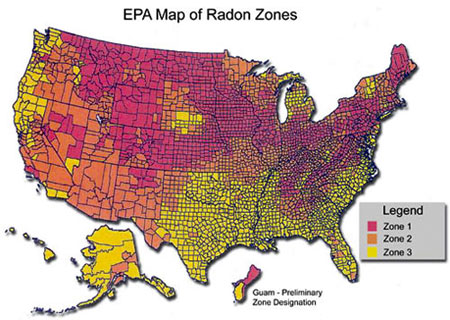What is radon gas? Is it hazardous?
Is radon really bad for you?
Breathing radon over time increases your risk of lung cancer. Radon is the second leading cause of lung cancer in the United States. Nationally, the EPA estimates that about 21,000 people die each year from radon-related lung cancer. Only smoking causes more lung cancer deaths.
Nevertheless, the absolute varieties of radon-induced lung cancers are much larger in individuals that smoke, or who have smoked in the past, because of a strong consolidated effect of smoking as well as radon. Because research, a considerable result (95% CI) was obtained for the Bq/m3 classification.
The systems can additionally keep out various other dirt gases like, methane, trichloroethylene, chlorine, poor smells as well as water vapors. Having a home with a radon mitigation system in position and also maintaining the levels low will certainly help in reducing lung cancer danger. There is anxiety circulating about the risk of lung cancer cells due to breathed in radon gas, as a result of the prevalent promotion provided to research studies that connect lung cancer cells incidence to radon concentration using a "straight no-threshold" (LNT) design. This model which lots 4mark.net/story/2306463/additional-info of researchers state is baseless as well as must be ditched predicts a startling unwanted of cancers, also at low radon levels.
Is radon mitigation really necessary?
When radon gas enters the body, it exposes the lungs to small amounts of radiation. In small quantities, experts say this is harmless. However, in persistent exposures or larger quantities, radon can damage the cells of the lining of the lungs, increasing a person's chance of developing lung cancer.
It's impossible to get to an absolutely no percent risk in locations where radon prevails, yet lowering the gas level as long as is viable deserves the initiative. Smoking cigarettes stays the number one reason for lung cancer cells in the United States. However, radon is usually the second largest factor to the condition in any provided year. You can raise your danger for lung cancer 9 times over when you incorporate a cigarette smoking behavior with a house that has risky radon degrees. Comprehending just what is radon testing isn't simply essential if you're a smoker or there's a smoker in your house, but it's essential for everybody.
- Your risk of lung cancer cells enhances significantly with exposure to greater radon degrees.
- Radon gas is a naturally-occurring result of the radioactive degeneration of Uranium in the soil.
- Depending upon your geographical area, the radon levels of the air you breathe beyond your residence might be as high as 0.75 pCi/L.
- The US EPA has actually put it simply, specifying, "Any radon direct exposure has some danger of causing lung cancer.
If you prevent smoking and various other dangerous habits yet still inhale too much radon while in the house or work, you could become one of the 20,000 or even more situations of lung cancer credited to the gas every year. Home owners aware of what is a radon Extra resources test know they have to evaluate at the very least as soon as every two years to stay clear of these problems. Irritated by its failing to awaken concern, the firm has actually strengthened its setting by overlooking those research studies which fall short to support its view. Of these the most important well may be a Finnish research study reported in July 1996 in the Journal of the National Cancer cells Institute which examined the impact of indoor radon exposure on lung cancer.
While any kind of degree of radon can have an impact, the EPA says readings below 2 pCi/L is considered typical as well as just lugs a reasonably tiny boosted threat of lung cancer cells. It's feasible yet often tough to minimize radon gas direct exposure listed below these degrees. Radon Act 51 gone by Congress established the all-natural outdoor degree of radon gas (0.4 pCi/L) as the target radon degree for interior radon levels. The United States EPA was charged with setting practical guidelines and also recommendations for the nation. At or over this degree of radon, the EPA recommends you takecorrective procedures to reduce your direct exposure to radon gas.
How long does it take for radon to cause cancer?


Fact: You will reduce your risk of lung cancer when you reduce radon levels, even if you've lived with an elevated radon level for a long time. Keep in mind that radon levels below 4 pCi/L still pose some risk and that radon levels can be reduced to 2 pCi/L or below in most homes.